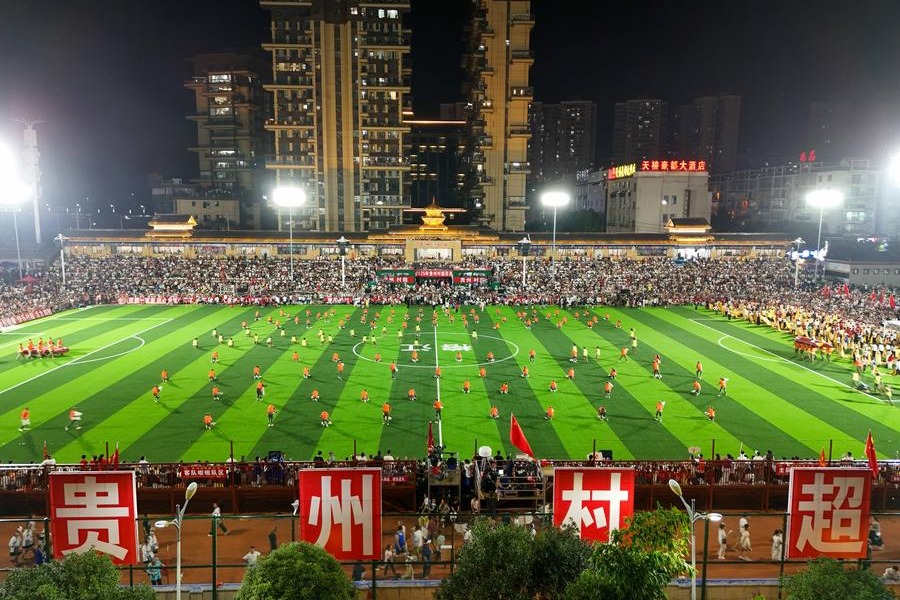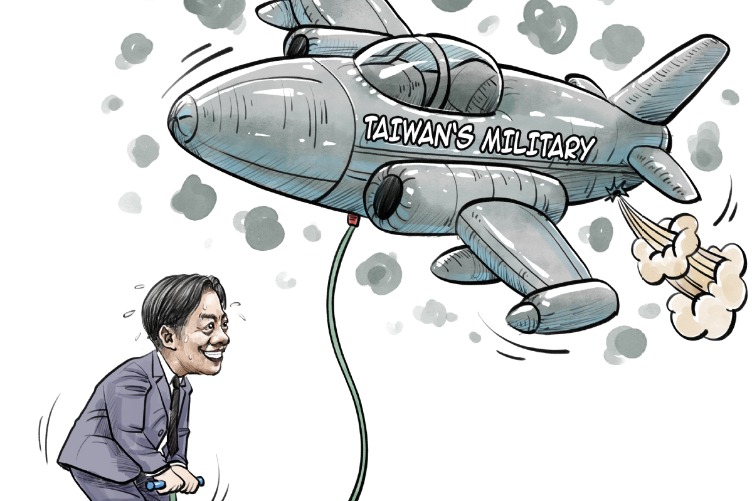All work, no leisure makes Japanese more suicide prone

Overwork, a deep-rooted problem in Japan, is back in the spotlight.
A 23-year-old worker on Tokyo's new National Stadium, the centerpiece of the 2020 Summer Olympic Games, committed suicide in April. On July 20 his parents submitted an application for compensation to Japan's Labor Standards Office, saying the cause of his suicide was overwork-he worked 200 hours of overtime in the month before his death, twice as much as the "allowable" maximum 100 hours of overtime a month.
Death by overwork, which first hit the headlines in Japan in the 1970s, has a Japanese term: karoshi. Excessive overtime work is still the norm in Japanese companies. A government white paper released in October last year showed that almost a quarter of the companies employed people who worked more than 80 hours of overtime a month-the official threshold for the risk of karoshi.
Once a death is judged karoshi in Japan, the victim's family is entitled to receiving compensation. The Japan Times reported 107 people were confirmed to have died from overwork in fiscal 2016-17, which ended in March.
Overstressed workers are likely to succumb to heart attack, and cerebral stroke or commit suicide. In fact, apart from the 107 confirmed karoshi, 84 people either committed or attempted suicide because of overwork.
Matsuri Takahashi committed suicide in December 2015. She had joined Japan's biggest advertising agency, Dentsu, in April that year and put in more than 100 hours of overtime work every month. She was just 24.
An investigation was ordered into her death, and the company chief executive has resigned. And on July 12, the Tokyo Summary Court said the Dentsu case demands an open trial.
Why do Japanese people work themselves to death? Why can't they quit their jobs that require them to work long and extra hours?
The number of full-time, permanent jobs with benefits and chances of promotion in Japan has dropped from about 85 percent in the 1980s to less than 60 percent today, according to Japan's Ministry of Health, Labor and Welfare.
The country's 3.1 percent unemployment rate is low, but most of the hiring over the past two decades of economic uncertainty has been for part-time positions. So full-time workers feel obliged to work extra hours lest their positions be made temporary. In fact, they are asked to work overtime for free, known in Japan as "service overtime".
Hard work is considered the cornerstone of Japan's postwar economic miracle. That's why leaving the office before one's superiors or seniors is considered rude. And although most Japanese workers get a 20-day paid leave a year, few take even half of it for fear of being seen as slacking or lacking commitment to their job.
Japan's culture of overwork is toxic. It has been blamed not just for a big number of karoshi, but also the critically low birth rate and declining productivity in Japan.
Approving a plan on Tuesday to curb excessive work hours that people are angry with, the Japanese government announced to cut the suicide rate by 30 percent in the next 10 years.
But the plan to reduce the suicide rate-the ratio per 100,000 people-from 18.5 in 2015 to less than 13.0 in 2025 sounds ambitious. The number of suicides in Japan has dropped since 2003 when a record 34,427 people took their own lives. But Japan still has the highest suicide rate among the Group of Seven countries.
The government has been trying to change the overtime culture in Japan by, among other things, naming and shaming more than 300 companies, including Dentsu, for forcing their employees to work overtime and other workplace violations. But without any penalties, it can hardly discipline the companies steeped in a culture of overwork, discrimination and harassment.
The upcoming trial of Dentsu, however, could shine more light on "service overtime" and sound the alarm for company managements to stop forcing their employees to work overtime for free and long hours.
The author is China Daily Tokyo bureau chief. caihong@chinadaily.com.cn































